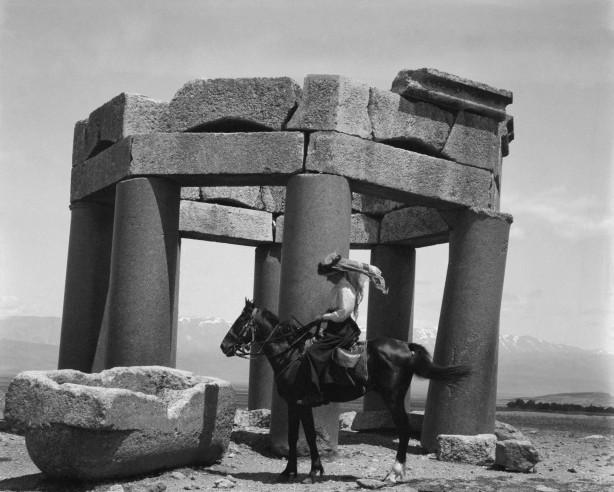
Dir.: Sabine Krayenbühl, Zeva Oelbaum | Cast: Eric Lohscheider, Rachael Sterling, Andrew Havill and the voice of Tilda Swinton | USA/UK/France 2016, 95 min.
Sabine Krayenbühl and Zeva Oelbaum convey the pioneering spirit of Gertrude Bell (1868-1926), an archeologist, spy, political bureaucrat and explorer at a time were women simply did not feature in public life. Featuring Bell’s letters, mainly to her father, complemented by “comments” made by dignitaries like T.E. Lawrence – this structurally uneven documentary feels more authentic than Werner Herzog’s overwrought imagined drama Queen of the Desert, starring Nicole Kidman.
Gertrude Bell was bon in 1868 in the stately family home in County Durham. Her father, Sir Hugh Bell, was a wealthy landowner and industrialist and the two formed a close bond after Gertrude’s mother died giving birth to her brother. Even though Sir Hugh later re-married, and Gertrude got on well with Lady Florence Bell, she was closest to her for the rest of her life. At Oxford in 1886 she obtained a first in Modern History; one of the few subjects women were allowed to study. And later travelled to Tehran in Persia where her uncle, Sir Frank Lascelles, was the British ambassador. In common with many British citizens of her class, she fell in love with the region and soon embarked on countless arduous expeditions around the Middle East. In 1909 she met T.E. Lawrence (Lohscheider) for the first time, their paths would cross again later, after the end of the Great War. Bell was doing “research” for the government, even before the Admiralty officially employed her. But her knowledge of the language and customs of the different tribes would serve them well during and after WWI.
The war itself became a personal tragedy for Bell, because her closest confidant, Major Charles Doughty-Wyllie, a married man, with whom she had an unconsummated affair, was killed at Gallipoli, with Bell hearing about his death in a restaurant in 1915. From now on, she would only live for her work. Vita-Sackville West (Sterling) comments on the lack of private fulfillment in Bell’s life – as far as we know, she only had one passionate love affair with Sir Frank Swattenham, which was short-lived. After the war, Bell was instrumental in drawing up the borders of the new state of Iraq, which would be ruled by Prince Feisul, the latter being very close to Bell. But Gertrude Bell was unhappy with the British Forces’ treatment of the locals: whole villages were punished because taxes had not been paid – even places of worship were destroyed. Bell wrote to her father “We are an immense failure. We wanted to set up a Arab government with British advisers, but we ended up with a British government with Arab advisers”. In another letter in 1921 she states her sorrow of “not having been home for Christmas for the last eight years”. In the same year she met T.E.Lawrence again, when she was working for Sir Perry Cox (Havill) at the Arab Bureau. But when Cox left in 1923, she was pushed aside by the Civil Service. Two years later, she visited her home in England for the last time, her family had fallen on hard times. Back in Baghdad, she helped to set up the Archeological Museum, which was opened a few weeks before her death from an overdose of sleeping pills in July of 1926.
Whilst the rich information about the life of this extraordinary woman is only too welcome – particularly after the superficial Herzog approach – perhaps a radio play would have not been a better way of telling this impressive story. Still, the newsreel clips and photos conjure up certain historical impressions. And it is particularly interesting to discover that Bell was not a friend of Standard Oil and other companies who exploited the region of Mesopotamia, the then British Mandate, where colonial rule would later cause even more havoc – until this very day. AS
ON GENERAL RELEASE AT SELECTED ARTHOUSE CINEMAS FROM 21 APRIL 2017